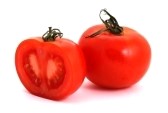You say divided, I say diverse: Is Idle No More about factionalism or freedom?
 As people frantically try to get a handle on the explosive, never-a-dull-day developments in Indian Country lately, one recent exchange in the media caught my attention: the battle to characterize and frame the semi-spontaneous events on the ground collectively known as ‘Idle No More.’
As people frantically try to get a handle on the explosive, never-a-dull-day developments in Indian Country lately, one recent exchange in the media caught my attention: the battle to characterize and frame the semi-spontaneous events on the ground collectively known as ‘Idle No More.’
The exchange began when National Post columnist Andrew Coyne asserted the following in his Jan. 7 column, “Meeting with Harper won’t settle aboriginal people’s problems”:
“the longer Idle No More has gone on, the more it has become clear it is not so much a dispute between aboriginal Canadians and the Harper government, but between rival factions in the aboriginal community”
“Factions”— as in, ‘divided,’ or ‘split,’ or ‘to be without common purpose.’ And, depending on how it is deployed, the term can be meant to imply confusion or inconsistency on the part of those so factionalized. Read Coyne’s piece for yourself to decipher and decide his intent.
Now I can’t be sure, but it does appear that MEDIA INDIGENA’s own Hayden King has likely read Coyne’s column. In his Jan. 9 commentary (“We natives are deeply divided. There’s nothing wrong with that”) for the Globe and Mail, King notes that
“while [Indigenous peoples] share a lot of important traits, there is also much that differentiates us. … the fact that there are 60-odd unique Indigenous nations in Canada (scattered across 600 communities) is lost on Canadian punditry, media and most of the public generally. Recent attempts to interpret the Idle No More movement has resulted in conclusions of sudden divisions, fracturing and ‘chiefs losing control.'”
Here, King seems to be re-stating the obvious: the basic fact that, like most folks, not all Indigenous people agree on everything all the time. Some pursue one path (encompassing certain goals and/or tactics), and some pursue another. And what’s true between Indigenous peoples is also true within their ranks as well: so, not all Nehiyawak think like Haida, and not all Haida think precisely the same as other Haida.
Which, when you think about it, is kind of like how not all Canadians agree on whether to support or slam the Idle No More movement. If only they could get their acts together. I kid.
That said, I have no doubt Coyne would readily acknowledge and allow for such diversity of opinion and action among Aboriginal people, but where he clearly differs with King is on what meaning or significance to attach to those differences.


I’m gemini. I find myself arguing with myself all the time.
To make matters worse, my right brain refuses to get in tune with my left brain.
It’s a good thing I no longer live in Toronto or no one in the rest of Canada would ever want to have anything to do with me. Of course, I’ve moved to Quebec so what does that mean?
What was Coyne’s point again?
Haha from a fellow Gemini. But seriously Andy Coyne? – who wants to transplant a junior royal to be king of Canada directly.